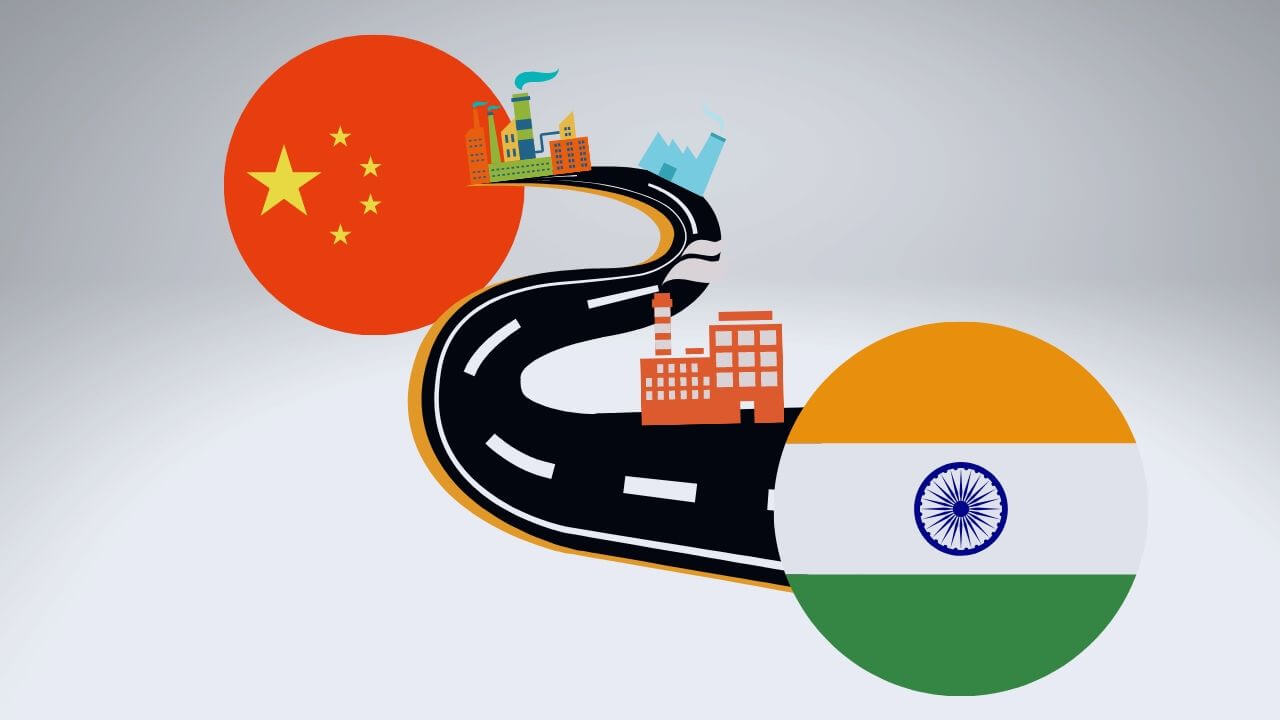
India’s Role in the Global Supply Chain Shift from China
The global supply chain is undergoing a fundamental transformation. As multinational corporations (MNCs) seek to diversify away from China, India has emerged as one of the most promising alternative hubs. Driven by geopolitical dynamics, cost competitiveness, and policy reforms, India’s positioning in global supply chains is no longer a peripheral conversation—it is central to long-term global sourcing strategies.
This shift—popularly referred to as the “China Plus One” strategy—is not about replacing China entirely but creating resilient, diversified sourcing and manufacturing ecosystems, and India is increasingly being seen as the primary alternative.
🔗 China Plus One Strategy – Invest India
🌍 Why Global Supply Chains Are Shifting from China
Several factors have contributed to this strategic realignment:
1. Rising Costs in China
Labor costs in China have more than tripled in the last decade. The cost advantage that once made China the “world’s factory” is slowly eroding.
2. Geopolitical Tensions
The U.S.–China trade war, China’s zero-COVID policy, and increased scrutiny from Western governments have raised risks for companies over-reliance on a single country.
3. Supply Chain Disruptions
COVID-19, port closures, and global shipping delays highlighted the need for supply chain resilience and geographic diversification.
🇮🇳 India’s Competitive Advantage
1. Massive Domestic Market
With 1.4+ billion people, India not only provides a manufacturing base but also a large consumer market—a dual advantage for global firms.
2. Government Reforms
India has undertaken major reforms to attract manufacturing:
-
Production-Linked Incentive (PLI) Schemes across 14 sectors
🔗 PLI Scheme Overview – DPIIT -
Digital India and Make in India initiatives
-
Simplified compliance via the National Single Window System
🔗 NSWS Portal
3. Growing Infrastructure
India is investing in:
-
Industrial corridors (e.g., DMIC)
-
Smart ports & logistics parks
-
Dedicated Freight Corridors (DFCs) for faster cargo movement
🔗 Industrial Corridor Development – NICDC
🔧 Sectoral Opportunities Where India Shines
📱 Electronics Manufacturing
India has become a global hub for smartphone assembly, with giants like Apple, Foxconn, and Samsung scaling up operations. Apple is expected to shift 25% of iPhone production to India by 2026.
🔗 Apple Expands Manufacturing in India – Reuters
🚗 Auto and EV Components
India is becoming a critical player in automotive and electric vehicle components, with significant growth in:
-
Lithium-ion battery assembly
-
2-wheeler EV manufacturing
-
Automotive Tier 1 and Tier 2 supplier base
💊 Pharmaceuticals
Known as the “Pharmacy of the World,” India supplies 60% of global vaccines and is increasingly being seen as a low-cost, high-quality alternative to Chinese APIs.
🔗 India Pharma Export Trends – Pharmexcil
🔄 India vs. China: Comparative Snapshot
| Parameter | China | India |
|---|---|---|
| Labor Cost (USD/hour) | ~$6.5 | ~$1.5 |
| Ease of Doing Business | Rank 31 | Rank 63 |
| Manufacturing Share of GDP | ~27% | ~17% (target 25%) |
| Workforce Size | 775 million | 600+ million |
| Internet Users | ~1 billion | ~900 million |
Source: World Bank, IBEF, Statista
🌐 India’s Integration with Global Trade
India is deepening its trade diplomacy and economic cooperation:
-
Free Trade Agreements (FTAs) with UAE, Australia, and discussions with the UK and EU
-
Active participation in G20, Quad, and WTO policy reform dialogues
-
Adoption of digital customs clearance, paperless trade, and smart port solutions
These initiatives help reduce transaction time and improve cost competitiveness, making India attractive for global supply chain stakeholders.
🚀 India’s Supply Chain Enablers
1. Digital Public Infrastructure
India’s digital stack (Aadhaar, UPI, GSTN, eWay Bills) creates a transparent, efficient business environment.
2. Startup Ecosystem
India’s logistics and supply chain startups like Delhivery, Rivigo, BlackBuck, and Freight Tiger are building technology-driven efficiencies in last-mile delivery, warehousing, and freight management.
3. Logistics Performance
India launched the PM Gati Shakti Masterplan to create a multimodal logistics ecosystem with better coordination across ministries.
🧩 Challenges India Must Address
Despite the progress, India needs to work on:
-
Skilling: Upskilling workforce for advanced manufacturing
-
Land acquisition: Delays in approvals still exist
-
Electricity reliability: Manufacturing demands steady power
-
Judicial & labor reforms: Essential for smooth business operations
Proactive policies and agent-based facilitation can help foreign companies navigate these complexities more efficiently.
🤝 Role of India-Agent.com in Global Supply Chain Realignment
India-Agent.com helps international buyers, investors, and supply chain managers:
✅ Identify verified Indian manufacturers and exporters
✅ Conduct due diligence and factory audits
✅ Manage local logistics, customs clearance, and after-sales
✅ Build risk-resilient supply networks
👉 Explore Services at India-Agent.com
📌 Conclusion
India is not just riding the wave of the global supply chain shift from China—it is actively positioning itself as the next global manufacturing and sourcing hub. With the right blend of reforms, infrastructure, digital innovation, and demographic advantage, India offers long-term value for companies diversifying their sourcing strategy.
As global supply chains become more regional, digital, and agile, India’s role will only grow stronger. For businesses worldwide, now is the time to engage with India proactively and strategically.
📞 Want to diversify your sourcing strategy into India?
📩 Contact an expert at India-Agent.com